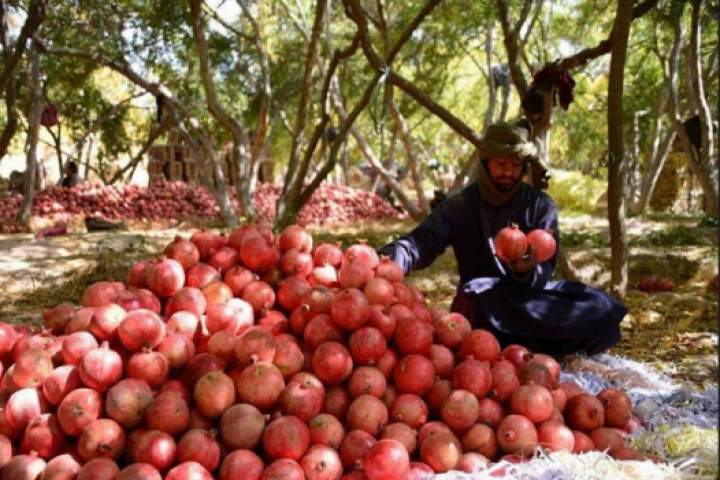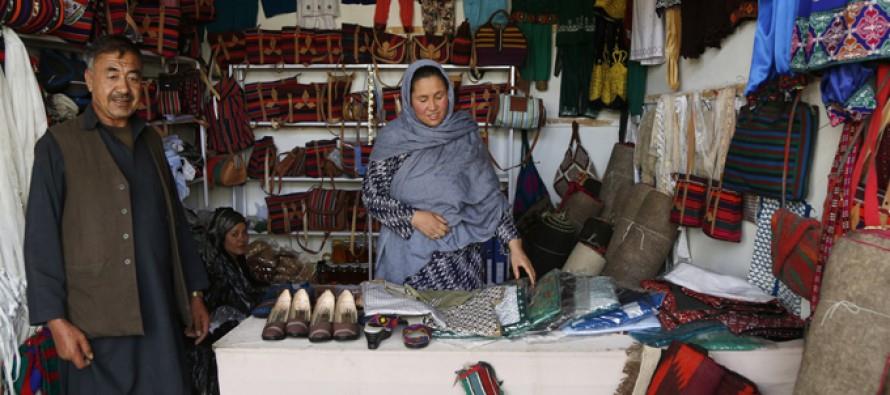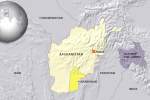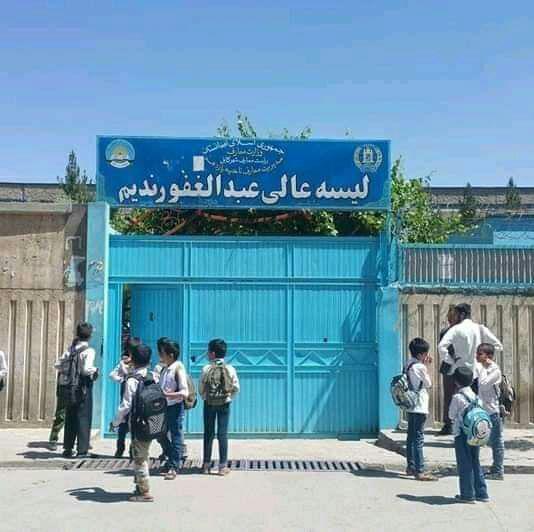The southern Kandahar province and neighboring states in the war-battered Afghanistan are famous for their flavorsome pomegranates and farmers are looking to international markets including China to boost the industry.
Publish dateThursday 24 October 2019 - 10:58
Story Code : 193854
"The price of one maan (4.5 kg) of pomegranates at the moment in a local market is 50 afghani (0.64 U.S. dollars) and the price is too low for a farmer to support his family," Mohammad Ali, a farmer in Kandahar province, lamented.
The veteran farmer and father of nine, who harvested about one ton of pomegranates from his village garden in the Arghandab district, complained that a lack of market opportunities has forced him to sell his pomegranates at a low price, which in no way matches his daily expenses.
"Business people from neighboring states import our pomegranates really cheaply at about 50 afghani (0.64 U.S. dollars) for one maan (4.5 kg) during this season and export them back at 150 afghani (1.92 U.S. dollars) per kg in winter and spring," Ali, 47, told media.
To find new markets and sell the pomegranate at a reasonable price, the farmer asserted that the pomegranate-growing farmers need cold storages to keep their fruits ripe and sell them in winter at a good price.
"We want the authorities to build cold storages and to facilitate farmers in protecting their products in autumn and sell them in winter and spring to foreign markets," Ali said softly.
A dejected Ali muttered that their products would spoil in the absence of cold storages and that is why the farmers have no choice but to sell their pomegranates before they are ruined.
"I am sure that China could be a good market for our pomegranates," Ali said hopefully.
Ali also said with optimism, "Many other farmers and I are looking forward to seeing our pomegranates exported to China, an economic power and populous country, that can potentially import significant amounts of Afghan pomegranates."
Afghanistan is an agricultural country as about 80 percent of the country's 30 million population, according to officials, have been relying on agricultural and horticultural products to make a living.
More than 3,000 cold storages, according to the Ministry of Agriculture, Irrigation and Livestock, are operational across the country and more cold storage facilities would be constructed, the ministry's spokesman Akbar Rustami said.
Afghanistan produces a variety of fruits such as apples, grapes, pears, melons, watermelons and many more, but pomegranates, according to the farmers are more profitable, but only if properly marketed.
Another farmer who introduced himself as Hamisha Gul has also voiced his frustration at what he described as the "low price of pomegranates" and said that the farmers would increase pomegranate production if the government finds new markets for the valuable fruit.
Otherwise, he warned that the pomegranate industry here could collapse.
The farmers' concerns have been passed on to the Deputy to Ministry of Agriculture, Irrigation and Livestock, Hashmatullah Ghafoori, who said that the government would do its best to find new, international markets for Afghan pomegranates including China.
"We have already started exporting pine nuts to China and we are now working on exporting pomegranates," Ghafoori said recently, adding that the country will continue working with China to further increase exports there.
The veteran farmer and father of nine, who harvested about one ton of pomegranates from his village garden in the Arghandab district, complained that a lack of market opportunities has forced him to sell his pomegranates at a low price, which in no way matches his daily expenses.
"Business people from neighboring states import our pomegranates really cheaply at about 50 afghani (0.64 U.S. dollars) for one maan (4.5 kg) during this season and export them back at 150 afghani (1.92 U.S. dollars) per kg in winter and spring," Ali, 47, told media.
To find new markets and sell the pomegranate at a reasonable price, the farmer asserted that the pomegranate-growing farmers need cold storages to keep their fruits ripe and sell them in winter at a good price.
"We want the authorities to build cold storages and to facilitate farmers in protecting their products in autumn and sell them in winter and spring to foreign markets," Ali said softly.
A dejected Ali muttered that their products would spoil in the absence of cold storages and that is why the farmers have no choice but to sell their pomegranates before they are ruined.
"I am sure that China could be a good market for our pomegranates," Ali said hopefully.
Ali also said with optimism, "Many other farmers and I are looking forward to seeing our pomegranates exported to China, an economic power and populous country, that can potentially import significant amounts of Afghan pomegranates."
Afghanistan is an agricultural country as about 80 percent of the country's 30 million population, according to officials, have been relying on agricultural and horticultural products to make a living.
More than 3,000 cold storages, according to the Ministry of Agriculture, Irrigation and Livestock, are operational across the country and more cold storage facilities would be constructed, the ministry's spokesman Akbar Rustami said.
Afghanistan produces a variety of fruits such as apples, grapes, pears, melons, watermelons and many more, but pomegranates, according to the farmers are more profitable, but only if properly marketed.
Another farmer who introduced himself as Hamisha Gul has also voiced his frustration at what he described as the "low price of pomegranates" and said that the farmers would increase pomegranate production if the government finds new markets for the valuable fruit.
Otherwise, he warned that the pomegranate industry here could collapse.
The farmers' concerns have been passed on to the Deputy to Ministry of Agriculture, Irrigation and Livestock, Hashmatullah Ghafoori, who said that the government would do its best to find new, international markets for Afghan pomegranates including China.
"We have already started exporting pine nuts to China and we are now working on exporting pomegranates," Ghafoori said recently, adding that the country will continue working with China to further increase exports there.
avapress.net/vdcjitevxuqehoz.92fu.html
Tags
Top hits












